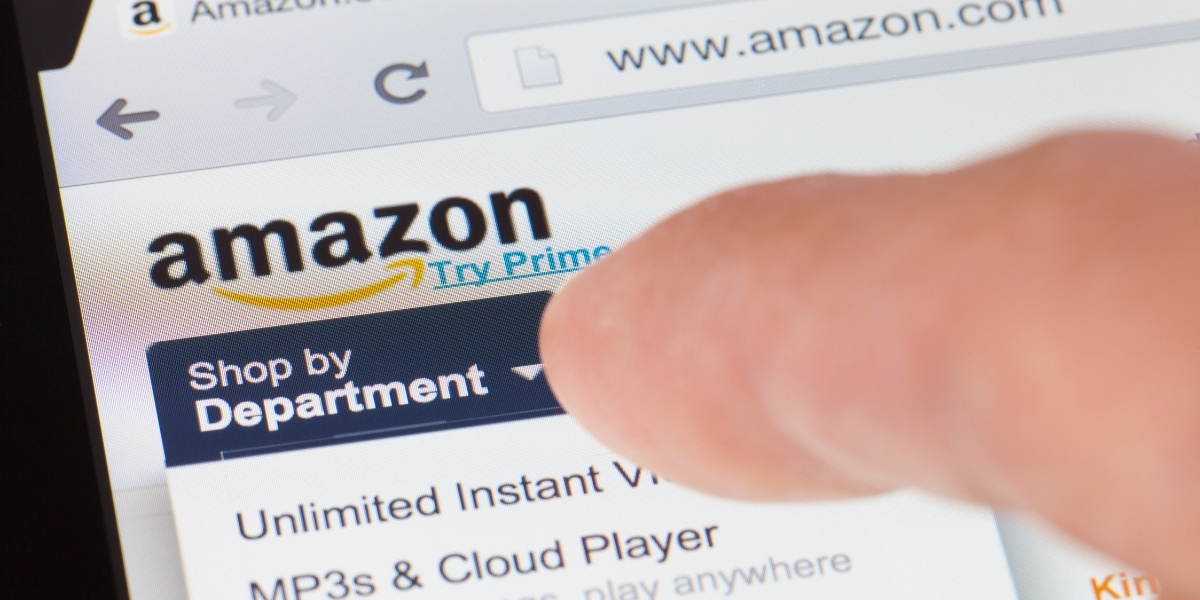
Photo: iStock
October 5, 2023
Is the FTC’s Antitrust Lawsuit a Threat to Amazon?
With the arrival of the Federal Trade Commission’s long-awaited antitrust lawsuit, Amazon has to defend itself against charges alleging that its massive platform has blocked competition, with the result being higher prices and less choice for consumers as well as increased costs for third-party sellers.
The complaint states that Amazon is able to maintain its alleged monopoly power in part due to the pricing tactics involving third-party sellers, particularly access to the platform’s “Buy Box,” or the real estate next to an item’s listing highlighted by prompts to “Buy Now” or “Add to Cart.”
The Buy Box, seen as a major driver of sales, is removed if Amazon finds the item cheaper on another website. The FTC charges, “Amazon can bury discounting sellers so far down in Amazon’s search results that they become effectively invisible.”
The FTC claims that third-party sellers are then coerced into keeping their prices high on other sites to retain the Buy Box, effectively raising prices for consumers and making it harder for other sites to compete on price.
Beyond pricing, the FTC asserts that Amazon coerces sellers into using its fulfillment service because that’s the only way their product listings obtain the “Prime” mark indicating fast and free delivery to Prime members. The “Prime” logo next to an item is also a major sales driver.
It’s often too costly for a seller to build another fulfillment network to support sales to other platforms, according to the FTC. “This unlawful coercion has in turn limited competitors’ ability to effectively compete against Amazon,” the agency said.
In response, Amazon inferred that the FTC misunderstands how the retail industry operates and how its tactics benefit consumers and sellers.
In a statement, David Zapolsky, Amazon’s SVP of global public policy and general counsel, said of Amazon’s policy over Buy Box access, “Just like any store owner who wouldn’t want to promote a bad deal to their customers, we don’t highlight or promote offers that are not competitively priced. It’s part of our commitment to featuring low prices to earn and maintain customer trust, which we believe is the right decision for both consumers and sellers in the long run.”
He also wrote that Amazon’s logistics services are optional, and many sellers find success without them. Sellers often choose to use them, he states, because of the significant savings they can offer — fulfillment fees are an average of 30% less expensive than standard shipping methods — and because “Amazon takes care of so much of the heavy lifting of logistics.”
Finally, the FTC’s complaint, according to Amazon, undervalues competition from physical stores, which still account for more than 80% of retail sales. Zapolsky wrote, “All of that competition leads to low margins for retailers, but lots of options for sellers to sell their products and better prices for customers wherever they choose to buy.”
The case, expected to last several years, comes as Amazon continues to maintain a strong reputation with consumers across surveys as well as with the majority of third-party sellers. According to Jungle Scout’s 2022 State of the Amazon Seller Report, 72% of sellers feel Amazon is a good company for the business owners that use its platform, with 82% optimistic that selling on Amazon will be a viable way to make money online in the future.
Discussion Questions
Is the FTC’s antitrust lawsuit a threat or more of an inconvenience to Amazon? How do you see the case playing out?
Poll
BrainTrust
Neil Saunders
Managing Director, GlobalData
DeAnn Campbell
Head of Retail Insights, AAG Consulting Group
Brandon Rael
Strategy & Operations Transformation Leader
Recent Discussions







Any lawsuit is a threat and the one from the FTC needs to be taken very seriously. However, the case is surprisingly weak and it shows some extremely biased thinking from the FTC.
Their biggest mistake is creating an artificial market called the ‘online superstore’ market which is defined as Amazon, Walmart, Target, and eBay. So, according to the FTC, no one else competes with Amazon. This is patently absurd and does not reflect real life.
The case is also extremely scattergun and contradictory. There is no smoking gun.
Bottom line: this is an ideological complaint that simply does not demonstrate that, in its own grandiose language, Amazon is a monopoly.
I don’t believe that the government has made a strong enough case against Amazon. Ultimately, this lawsuit will fail, but it will be protracted and cost Amazon tens of millions if not more in legal expense, not to mention the distraction. The fact is, Amazon brought down costs for consumers, and to a great extent, it’s third-party sellers are happy with the platform. Amazon did not kill brick-and-mortar retailers. So where’s the beef?
This battle inconveniences Amazon.
Amazon is a tech enabler whose fulfillment, delivery and ad services help sellers stay in business. Who else offers such a robust B2B infrastructure?
Smaller sellers have been the stars of Prime Day and they will be again next week.
I think it’s a case of “pay the ticket and go home.” As far as I can tell, there are no barriers to entry for others – Walmart (who has paid its own fair share of tickets over the years) has a marketplace, there are marketplaces for used goods.
Amazon is a thousand pound gorilla but sometimes I think the media gives it more oxygen than it should. That was Bezos art form. He knew how to work the media masterfully.
It’s not a big threat.
The FTC entered this lawsuit, not to win but to lay the foundation for more robust legislation for competition across all industries. If they were serious about monopolies they wouldn’t have allowed Walmart to build the Walmart+ marketplace, Heinz to buy Kraft, or InBev to acquire Miller. But by bringing Amazon, Google and other substantial lawsuits into the spotlight now they are building awareness of competitive impacts that the projected tsunami of coming mergers & acquisitions will have on our economy.
Amazon‘s scale, omnipresence, and vertical integration of its online and supply chain capabilities, relentless innovations, are hard to compete with. However, despite the lawsuit against Amazon led by FTC Chair Lina M. Khan, the company does not wield monopolistic powers over the retail or eCommerce industry.
“Our complaint lays out how Amazon has used a set of punitive and coercive tactics to maintain its monopolies unlawfully,” FTC Chair Lina Khan said in a statement. “The complaint sets forth detailed allegations noting how Amazon is now exploiting its monopoly power to enrich itself while raising prices and degrading service for the tens of millions of American families who shop on its platform and the hundreds of thousands of businesses that rely on Amazon to reach them.”
“The FTC and its state partners say Amazon’s actions allow it to stop rivals and sellers from lowering prices, degrade quality for shoppers, overcharge sellers, stifle innovation, and prevent competitors from fairly competing against Amazon. “
▪️ The clear argument against these claims is that Amazon’s marketplace enables retailers, brands, and indie creators to sell their products in their marketplace
▪️Walmart and other online marketplaces offer similar capabilities, scale, and organic growth
▪️Despite their share of the retail and eCommerce segments, there is plenty of room for other retailers to compete with Amazon and Walmart – neither company is “restraining trade.”
▪️The cost savings and synergies achieved by Amazon’s vertical integration of its supply chain capabilities have enabled the company to provide lower-price and value-driven products
This will be fascinating to watch, and we should expect a long and drawn-out lawsuit.
I went with minor, since truly seminal ant-trust actions are few and far between. That having been said, and as I’m not a lawyer – let alone one familiar with the details – I won’t comment strictly on a case law basis, it’s reasonable to say that while Amazon is by no means a monopolist, it does yield enormous power; and that’s always going to present an issue. I expect a “nibbling around the edges” agreement, but the basic issue(s) will remain.
The Amazon resellers I know are quite happy, working hard, making a nice little side income even if profits are thin. It’s been up to them what they sell, how much volume and how they price.
FTC threats, with any significant evidence look weak, and might be nothing more than flat out bias and posturing.